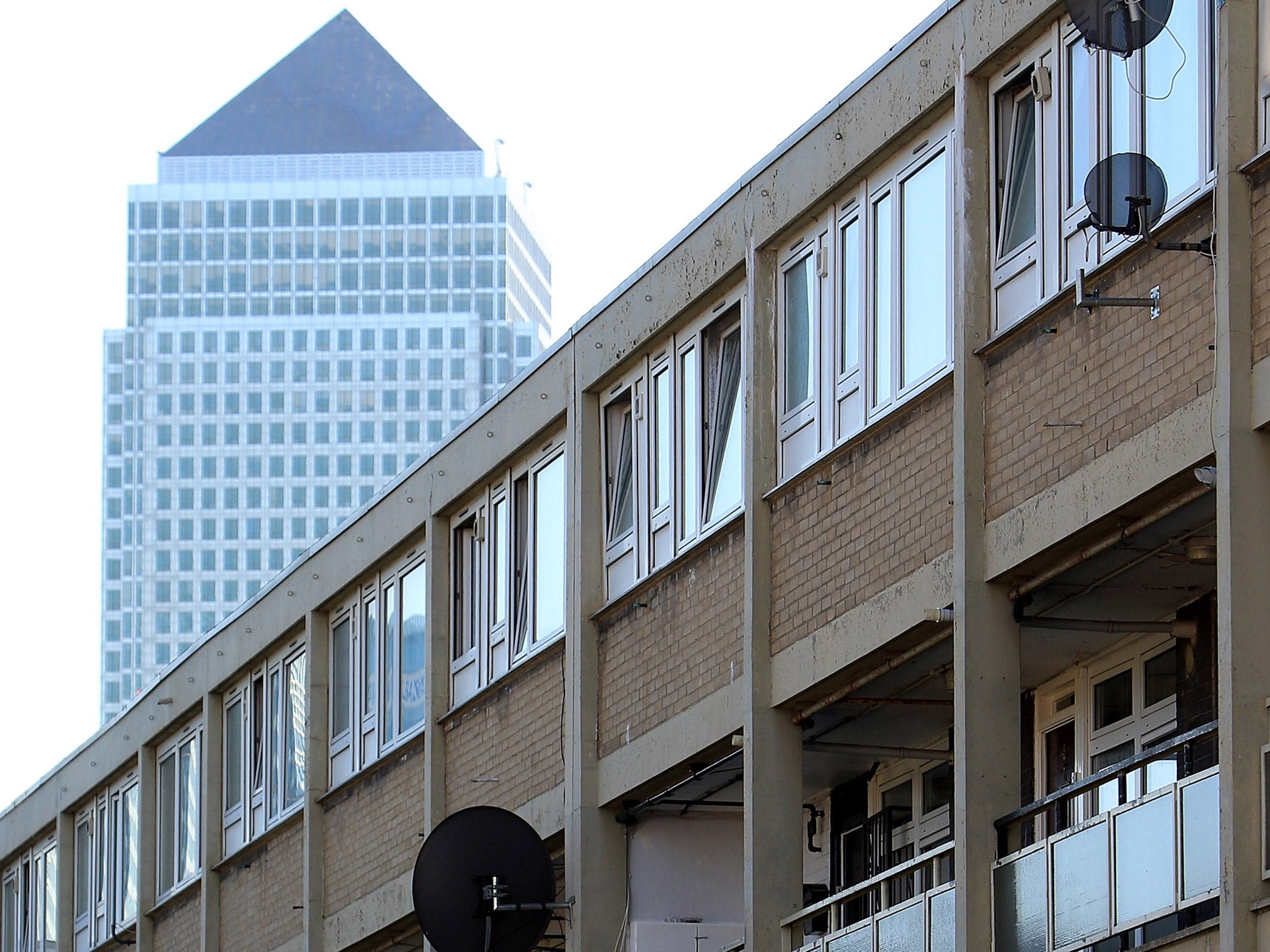The Tories are removing twice as many people from the electoral register in Britain's poorest areas as the richest
The policy could disenfranchise the poorest parts of the country

The Conservatives’ changes to electoral registration will disproportionately remove people from the electoral register in poorer areas of the country, an analysis suggested.
Over twice as many voters will be removed from the register in the ten poorest areas in the UK compared to the richest areas outside London.
The capital, a Labour stronghold, will also be disproportionately affected by the shift to Individual Electoral Registration (IER), because of the high proportion of people who live in private rented housing there.
The Government is moving Britain’s electoral register from a system of household electoral registration to an individual one.
But groups, including the Electoral Reform Society and Hope Not Hate, have warned that the way the change is being made could lead to underrepresentation in poorer areas.
Most people have been automatically moved over to the new register by matching their data to other government services, but in deprived areas the proportion of people found is significantly lower - meaning more entries are simply taken off the register.
In Britain’s ten poorest areas an average of 6.2 per cent of people on the electoral register are expected to be removed when the system changes – with the figure as high as 22.9 per cent in areas like Hackney where people who rent their homes live.
By comparison only 2.96 per cent of voters will fall off the register in the ten leafiest and richest areas outside the capital, the study, conducted by Hope Not Hate, found.
Most worryingly, underrepresentation now could be made permanent because the new boundaries for parliamentary constituencies will be decided on the electoral register as it stands on 1 December 2015.
A seriously worrying issue for our democracy
The Government wants to base the new boundaries – which are expected to favour the Conservatives – on registered voters rather than actual population levels.
This means that missing voters in poorer areas – usually safe Labour – could lead to entire constituencies disappearing and reappearing in rich areas – usually safe Conservative.
This would shore up the in-built advantage the Conservatives have under the current electoral system.
The Labour-facing campaign group Momentum announced on Sunday it was launching a mass voter registration campaign to try and sign as many people up to the register before 1 December so that the boundary review would reflect the population as accurately as possible.
The campaign is supported the TSSA, a railway workers’ union. Sam Tarry, the union’s national political officer, described the boundary review as a stitch-up.
“The Tories want to gerrymander the electoral boundaries - taking away millions of working people across Britain’s chance to be counted,” he said.
“It's a blatant, anti-democratic stitch-up designed to keep them in power for as long as possible.
“Over the next few weeks we will work in communities across the country - going out and talking to people face to face, to ensure every citizen’s voice is heard and will count.”
Katie Ghose, the chief executive of the Electoral Reform Society, said the Government’s move was a “worrying issue for our democracy”.
“The fact that 1.9 million people risk being excluded by the government’s wrong-headed early shift to complete individual voter registration – against Electoral Commission advice – is a scandal. We should be looking at automatic registration, as happens in many other countries - otherwise millions of people could lose their voice,” she told the Independent.
“The government appear to be prioritising cutting the number of MPs while continuing to allow the Lords to grow out of all proportion – a seriously worrying issue for our democracy.
“We call on the government to listen to the experts and to delay the early shift to IER, so that those 1.9 million people aren’t excluded. Crucially though, we need a registration revolution in this country, alongside real democratic reform, to ensure political equality.”
The Government defended the early switch to the new register and said it believed enough people had signed up for it to be viable.
Officials also point out that some people not covered by the new IER list may be data errors rather than real people still living at that address.
The Cabinet Office said it would work with local authorities to make sure as many people were registered as possible and added that individual voter registration was a vital reform to Britain's political system.
“Individual electoral registration is absolutely key to tackle election fraud. We are working with local authorities to remove ghost voters who don’t exist or have moved on, to make sure we have a clean and fair electoral roll. " John Penrose, Minister for the Constitution, said.
“This system has been tried and tested in Northern Ireland for over a decade, where there were once serious concerns about electoral fraud.
“The answer to under-registered groups like young people or expatriates is not to stuff the electoral rolls - and potentially the ballot boxes - with the names of people who don't exist, but instead to run a vigorous and energetic voter registration campaign. Which we will do."
The boundary review was due to go ahead before the 2010 general election but was blocked by the Liberal Democrats in response to Conservative MPs blocking House of Lords reform.
Subscribe to Independent Premium to bookmark this article
Want to bookmark your favourite articles and stories to read or reference later? Start your Independent Premium subscription today.

Join our commenting forum
Join thought-provoking conversations, follow other Independent readers and see their replies